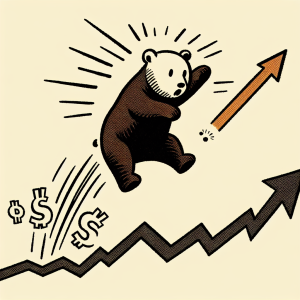As global markets react to shifting trade policies, Singapore investors are feeling the heat from the latest developments in U.S. tariff strategies. Stocks in Singapore tumbled sharply this week as concerns grew over the potential implications of the U.S. government’s new reciprocal tariff policy. This move, aimed at addressing trade imbalances with major partners like China and the European Union, has sent ripples through global financial markets, raising alarms among investors about the potential for escalating trade tensions.
The U.S. tariff policy, which seeks to impose higher tariffs on countries with elevated trade barriers, has sparked fears of a broader economic slowdown. For Singapore, a nation heavily reliant on global trade, the stakes are particularly high. The city-state’s economy is characterized by a low consumption-to-GDP ratio of just 31%, indicating a strong dependence on exports. This reliance makes Singapore vulnerable to changes in international trade dynamics, especially when major economies like the U.S. alter their tariff structures.
As investors reacted to the news, the Straits Times Index fell by over 2% in a single trading session, reflecting widespread concerns about the potential for reduced export demand. Analysts warn that if the U.S. continues down this path, it could lead to a domino effect, prompting retaliatory measures from affected countries. Such a scenario would not only disrupt Singapore’s trade flows but could also dampen investor confidence, leading to a slowdown in foreign investments that are crucial to the city-state’s economy.
Implications for Singapore’s Investment Climate
The ripple effects of the U.S. tariff plan extend beyond immediate stock market reactions. Singapore’s strategic position as a transshipment hub in the Asia-Pacific region is at risk. The city-state has long been a gateway for trade between the West and Asia, and any disruption in trade routes could affect its attractiveness to foreign investors. This is particularly concerning as global investors increasingly prioritize sustainability and circular economy principles, which are becoming essential components of investment strategies.
Furthermore, the European Union’s Circular Economy Action Plan emphasizes sustainable growth, which aligns with Singapore’s own push towards integrating green initiatives. As the global economy shifts focus towards sustainability, Singapore must adapt its investment climate to attract capital that prioritizes environmentally friendly practices. This could mean enhancing policies that support sustainable technologies and circular economy principles, ensuring that the city-state remains competitive in the evolving global landscape.
A Call for Inclusive Growth
In addition to the challenges posed by tariff policies, Singapore is also facing pressures to foster inclusive growth. The EU’s Social Economy Action Plan highlights the importance of supporting small and medium-sized enterprises (SMEs) and ensuring equitable access to finance. Singapore, recognized for its progressive economic policies, could benefit from drawing insights from these frameworks to bolster its own social economy initiatives. By enhancing support for SMEs and encouraging innovation, Singapore can build a more resilient economy capable of weathering external shocks.
In conclusion, as stocks tumble and uncertainties loom over the global economic landscape, Singapore must navigate these challenges with a strategic focus on trade, sustainability, and inclusivity. The interplay between U.S. tariff policies and Singapore’s economic strategies will be crucial in determining the future trajectory of its financial markets and overall economic health. Investors and policymakers alike will need to remain vigilant and adaptable to ensure that Singapore continues to thrive as a global financial hub amidst these turbulent times.





